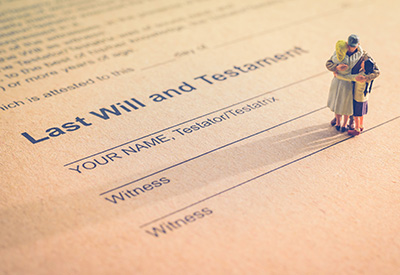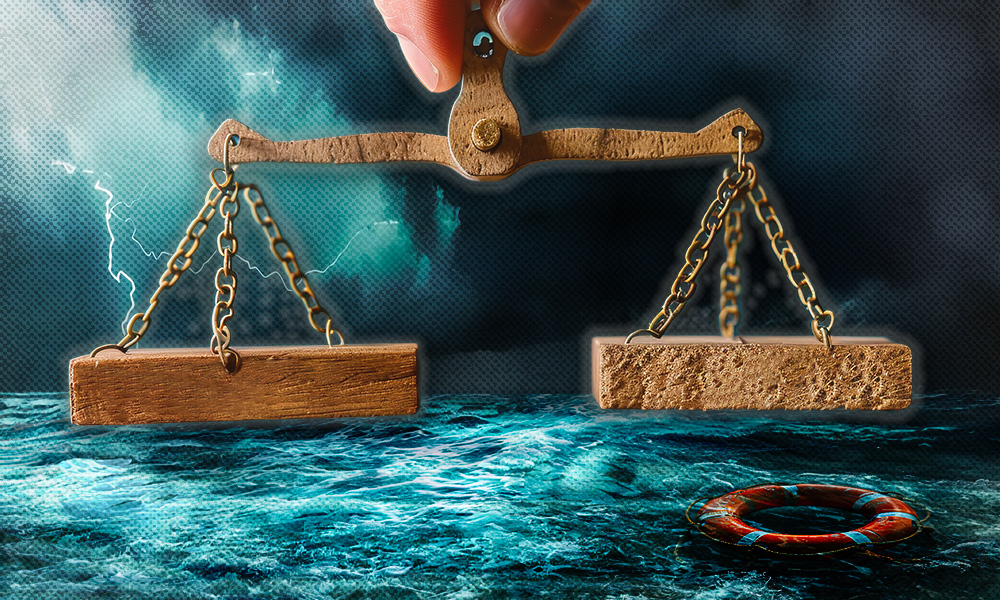Picture this: You're the captain of a ship navigating treacherous waters. On one side lies the calm, well-charted route of contingency planning. On the other, the stormy seas of crisis management. Which course will you choose for your estate's journey? In the intricate world of estate planning, two divergent paths emerge: the foresighted approach of contingency planning and the reactive scramble of crisis planning. Like a chess grandmaster anticipating moves far in advance, contingency planning allows you to orchestrate your legacy with precision. Meanwhile, crisis planning is akin to a frantic endgame, where critical decisions are made under duress.
As you consider estate planning strategies, you’ll find an array of choices that can either fortify your family's future or leave it vulnerable to the whims of fate. From safeguarding assets to preserving family harmony, the stakes couldn't be higher, and the choices you make today can echo through generations to come.
What is contingency planning in estate planning?

Contingency planning in estate planning is a proactive approach that focuses on preparing for predictable life events and gradual transitions. This strategy involves creating a comprehensive plan while you're mentally competent and able to make sound decisions. The goal is to establish a clear roadmap for your assets, health care decisions and family's future, minimizing potential conflicts and legal issues down the line.
Key elements of contingency planning include:
- Establishing wills and trusts.
- Designating powers of attorney.
- Naming beneficiaries for various assets.
- Appointing guardians for minor children.
- Structuring asset transfers to minimize tax burdens.
- Creating business succession plans.
- Setting up advance health care directives.
By addressing these aspects in advance, you can help ensure that your wishes are clearly documented and legally binding. This foresight can save your loved ones from unnecessary stress and potential disputes during already difficult times.
How does crisis planning differ from contingency planning?
The key difference between contingency and crisis planning lies in the timing and circumstances under which they occur. Crisis planning is a reactive approach that addresses immediate, unexpected situations requiring quick action. This type of planning often occurs when there's a sudden change in circumstances, such as an unexpected illness, accident or death. Crisis planning is typically more stressful and may result in less-than-ideal outcomes due to the pressure of time constraints and limited options.
Elements of crisis planning may include:
- Managing sudden incapacity or terminal illness.
- Implementing emergency medical decisions.
- Handling rapid asset protection and transfer.
- Dealing with immediate long-term care needs.
- Establishing guardianship or conservatorship if advance planning wasn't done.
Contingency planning happens proactively during stable times, allowing for careful consideration of various scenarios and options. Crisis planning, however, takes place reactively under pressure, often with limited choices and potentially higher costs.
Why is contingency planning preferable to crisis planning?

Contingency planning offers several advantages over crisis planning:
- More control. By planning in advance, you have greater control over your estate and health care decisions.
- Better outcomes. Thoughtful planning typically leads to more favorable, predictable results for all parties involved.
- Cost-effective. Proactive planning is often less expensive than crisis management.
- Reduced stress. Your loved ones face less stress and uncertainty during difficult times.
- Legal protection. Properly executed estate planning documents provide stronger legal protection for your wishes.
Given these benefits, it's clear why estate planning professionals recommend prioritizing contingency planning to avoid crisis situations whenever possible. While the financial and legal aspects of estate planning are crucial, it's also important to consider the emotional impact on you and your loved ones.
Contingency planning offers several emotional benefits:
- Peace of mind. Knowing that you've taken steps to protect your family and assets can provide significant relief.
- Family harmony. Clear instructions and advance planning can prevent family disputes and misunderstandings.
- Legacy building. Thoughtful planning allows you to shape your legacy and pass on your values along with your assets.
- Reduced guilt. Family members won't have to make difficult decisions on your behalf without knowing your wishes.
- Empowerment. Taking control of your future can be empowering and reduce anxiety about the unknown.
In contrast, crisis planning often involves heightened emotions, stress and potential conflicts, which can strain relationships and lead to long-lasting family tensions.
How can you start contingency planning for your estate?
Starting your contingency planning journey requires careful consideration and systematic preparation. Begin by creating a comprehensive list of your assets, including everything from property and investments to personal belongings that hold both financial and sentimental value. Take time to clearly define your objectives regarding asset distribution, health care decisions and the legacy you wish to leave behind.
Working with experienced professionals is crucial for developing a robust plan. Collaborate with estate planning attorneys, financial professionals, and tax professionals who can provide expert guidance tailored to your specific situation. With their help, create or update essential documents such as your will, trusts, powers of attorney and advance health care directives. Remember that estate planning isn't a one-time task — it's an ongoing process that requires regular review and updates, particularly after significant life changes occur. This proactive approach helps ensure your plan remains aligned with your current circumstances and wishes.
What are the most important documents in contingency planning?

The cornerstone of effective contingency planning lies in having the right documents in place. These typically include:
- Last will and testament. This document outlines how you want your assets distributed after your death and can also name guardians for minor children.
- Revocable living trust. A trust can help your assets avoid probate and provide more control over asset distribution.
- Durable power of attorney. This allows someone to make financial decisions on your behalf if you become incapacitated.
- Health care power of attorney. This designates someone to make medical decisions for you if you're unable to do so.
- Advance health care directive (living will). This document outlines your preferences for end-of-life care.
Having these documents in place can significantly reduce the need for crisis planning and ensure your wishes are respected.
How does contingency planning address business succession?
For business owners, contingency planning plays a crucial role in ensuring the smooth transition of their enterprise. A well-crafted business succession plan should:
- Identify potential successors.
- Outline the transfer of ownership and management responsibilities.
- Address potential tax implications.
- Include buy-sell agreements if applicable.
- Provide for the continuity of operations during the transition.
By addressing these aspects in advance, business owners can protect their legacy and ensure the continued success of their enterprise.
How can contingency planning help with long-term care preparation?

Long-term care is a significant concern for many individuals as they age. Contingency planning can address this by:
- Exploring long-term care insurance options.
- Considering Medicaid planning strategies.
- Setting up trusts to protect assets while qualifying for benefits.
- Discussing preferences for in-home care vs. facility care with family members.
- Allocating resources for potential long-term care needs.
By addressing these issues in advance, you can help ensure that you receive the care you need without depleting your estate or burdening your family.
Conclusion
The choice between contingency and crisis estate planning isn't really a choice at all — proactive planning is clearly the superior path. By embracing contingency planning now, you can help protect your legacy, preserve family harmony and ensure your wishes are carried out as you intend. Regular reviews and updates with qualified professionals can help keep your plan current and effective. Instead of waiting for a crisis to force your hand, you can take control of your future by developing a comprehensive contingency plan that safeguards what matters most to you and your loved ones.



